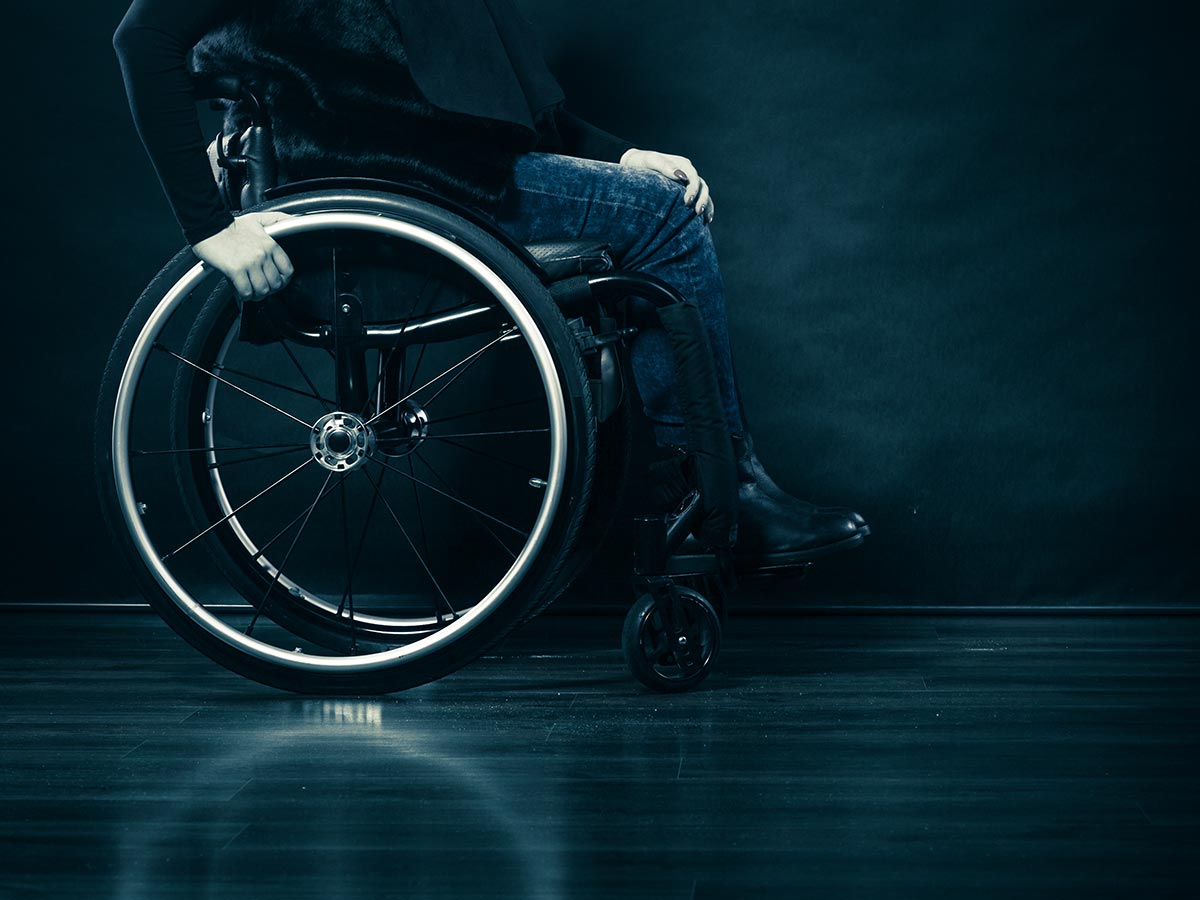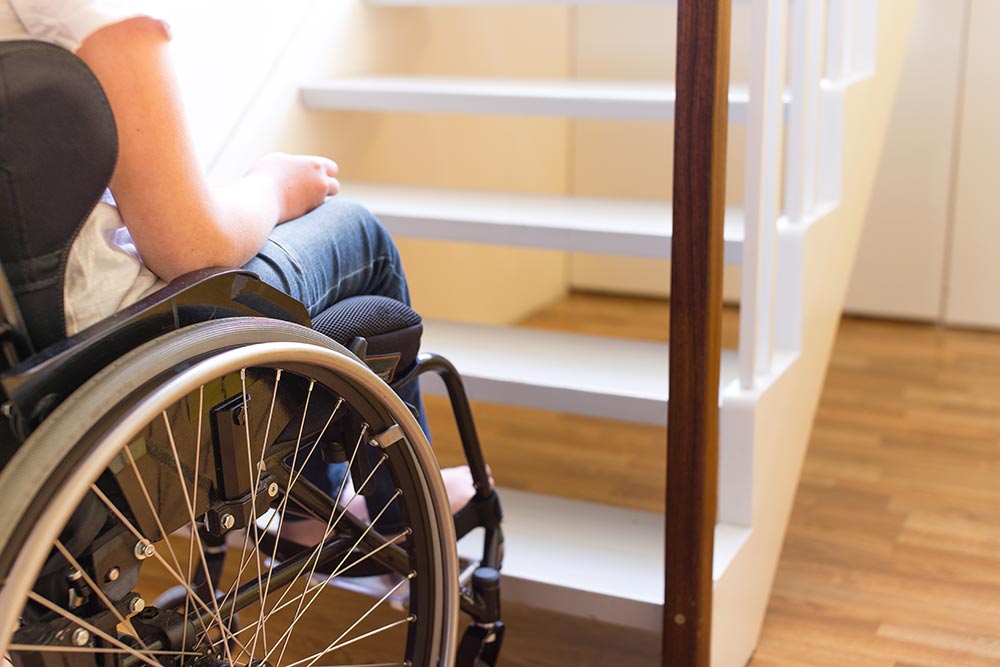Drug and Alcohol Rehab for Individuals with Disabilities
Getting treatment for drug or alcohol addiction is a crucial step on the road to recovery, giving many people the tools and the foundation to start a new and sober life. Unfortunately, this step is often more difficult for members of the disabled community, who face barriers including physical, emotional, and cognitive disabilities preventing them from seeking out traditional help. At the same time, individuals with disabilities are more vulnerable to addiction than anyone. With emotional and physical pain, disabilities contributing to addiction vulnerability, and a high-rate of prescription medication which can contribute to addiction, many disabled individuals need drug and alcohol rehab.
Understanding how to get around the barriers preventing you or your loved one from seeking rehab and how to seek out a rehab facility offering the full support and attention you need to recover will help you to make the crucial step towards a new, substance-free life.
Individuals with Disabilities Suffer from an Increased Vulnerability to Addiction
Persons with disabilities are often classified as high-risk for substance use disorder, thanks to a variety of contributing factors including physical or emotional pain, isolation, and persistent prescription medication. In addition, many of the risk factors for drug use overlap with side effects or symptoms of emotional, cognitive, and physical disability such as physical pain, mental imbalance, depression, isolation, boredom, addicted pain medication, enabling caretakers, and a negative history of physical, emotional, or sexual abuse. Because people with disabilities are more vulnerable in each of these instances, they are more prone to drug use and addiction.
Substance Use Disorder Significantly Harms Those with Disabilities
While individuals with disabilities are more vulnerable to addictions, substance use disorders are more harmful than to the general public. For example, in a study produced by SAMHSA, it was shown that substance use disorders contribute to reduced engagement with rehabilitation services, decreased effectiveness or unintended side-effects of medication, impaired cognition, impeded muscle control and balance, a reduced ability to follow self-care routines, increased risk of isolation and domestic strife, an increased risk of lowering health and secondary disability side-effects, and an increased risk of job loss or underemployment.
In short, drug abuse and addiction can make the symptoms of disability worse, increase severity of the illness or disorder behind the disability, and create new mental and physical health problems decreasing the total quality of life for the individual. For example, a person in a wheelchair may be unable to go out to meet others when focusing on drug use, contributing to further isolationism and loneliness. A person with anxiety or depression may find that alcohol or drug abuse interferes with medication while exacerbating the symptoms of their disorder.
At the same time, more than 8 million disabled Americans suffer from substance use disorders. While many never go on to seek help, fearing and facing discrimination, poorly equipped treatment facilities, and a lack of funds, help is available. If you or your loved one is facing addiction and disabled, this is often true, but there are many rehab centers that offer support and care for individuals with disabilities.
What Makes a Good Rehab Center If You're Disabled?
While not all treatment facilities offer care for individuals with disabilities, many do. It's important to know what to look for when choosing a treatment program.
Personalized Care – Anyone with a disability needs personalized care designed around their disability and the barriers it presents. A person with anxiety or depression needs treatment for their mental health disorder. A deaf person needs support for ASL and likely to be treated alongside other members of the Deaf community. Getting personalized treatment allows your specific mental and physical health issues to be taken into consideration as part of the treatment – so that it's accounted for rather than forcing you to persevere despite handicaps. Specialized support is often crucial to ensuring that appropriate physical care and support are present alongside a recovery program that supports mental and physical disabilities.
Dual Diagnosis and Support – Dual Diagnosis or comorbid disorders are extremely common in persons with disabilities. A dual diagnosis happens when your disability actively contributes to your substance use and vice versa. In this situation, your rehab center must be equipped to treat the symptoms of the mental disorder contributing to addiction first, or you will simply relapse when leaving treatment. This typically involves a full medical assessment and treatment for specific factors contributing to addiction first – enabling you to move past the most dangerous or life-threatening aspects of both first so that you can focus on overcoming addiction later.
Trained Medical Staff – Trained and licensed medical staff can offer the support and care needed to care for your disability, to communicate through barriers, and to properly recognize physical and mental health barriers for what they are. Persons with cognitive disabilities especially need more and more fine-tuned attention from counselors to overcome communication barriers which may prevent or slow down treatment.
Support for Physical Disability – While many treatment centers are increasingly making facilities more open and accessible to those with physical disabilities, it still isn't a guarantee. Many lack elevators, ramps, guard rails, and braille reading material which would make recovery spaces accessible. If unsure, ask during the initial consultation.
Flexible Care – If you need specialized medical care or support you may not be able to attend inpatient addiction treatment. Check to see if your chosen facility can either offer the specific medical care you need at their facility or work with you on an outpatient basis to support your medical needs.
Checklist:
It's crucial that you take the time to ensure your rehab facility is equipped to help you recover and can offer the personalized treatment you need.
- Take an initial assessment
- Confirm that the center offers facilities for your disability
- Check about personalized care. This is crucial for learning and communication disabilities as well as anxiety and depression which could inhibit motivation
- Consider if the rehab center can cater to special diets or allergies
- Are staff trained to work with your disability?
- Are staff able to move past communication barriers?
- Will the center treat you despite using prescription medication?
- Are there any parts of treatment, such as mandatory exercise, you cannot take part in?
- What are the rooms like? Do you have to share a room or are private rooms available?
- Is group therapy mandatory? Is it possible for you?
Seeking Treatment When You Still Need Prescription Medication
While many drug and alcohol rehab facilities focus on total sobriety, this isn't always possible for individuals with disabilities. You may be required to remain on pain medication, anxiety medication, or many other types of prescription medication simply to keep up basic health and functionality. This doesn't mean that you can't seek out drug treatment to tackle your addiction. However, it does mean that you will have to choose your rehab facility more carefully, because not all facilities will offer the support and care you need.
While there are many barriers to seeking help, you are entitled and have every right to receive personalized and quality care. In addition, most insurance policies will cover most or all rehab costs, which you can press under the grounds that getting treatment will reduce your future medical bills and health problems.
If you or your loved one is suffering from a substance use disorder, there are many rehab facilities that offer treatment specifically or individuals with disabilities. While disabilities vary a great deal, they increase the impact and harm caused by substance abuse. Getting treatment will work to tackle the underlying issues behind addiction so that you or your loved one can move on, use medication in a healthy way, and learn to cope with stress to live a happy life without abusing drugs or alcohol. Please feel free to contact Anaheim Lighthouse today, a modern and effective alcoholism treatment center in Southern California, help is here.















